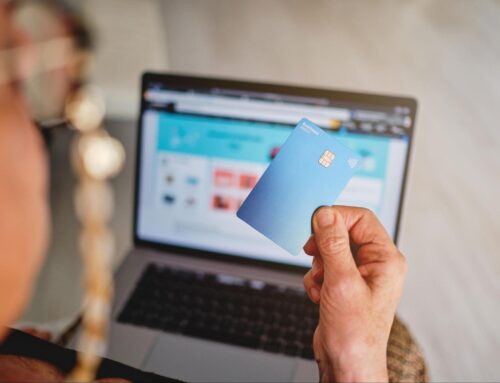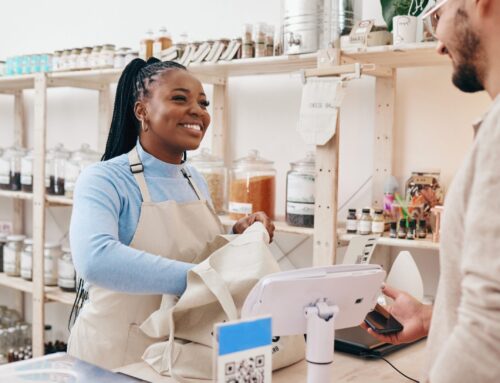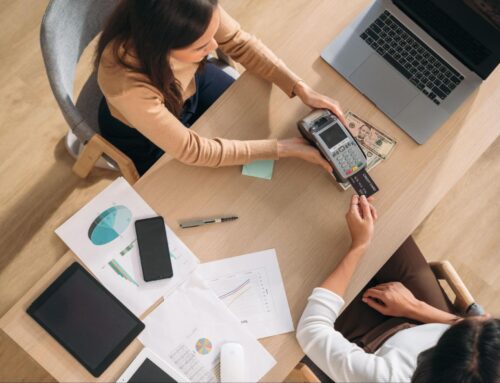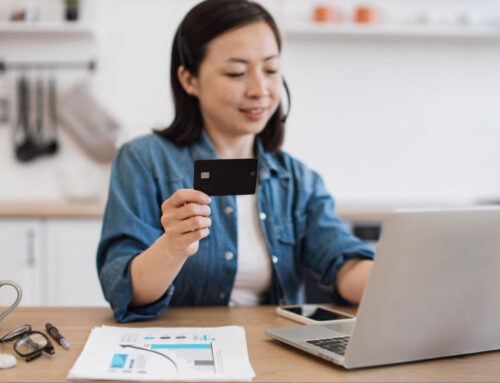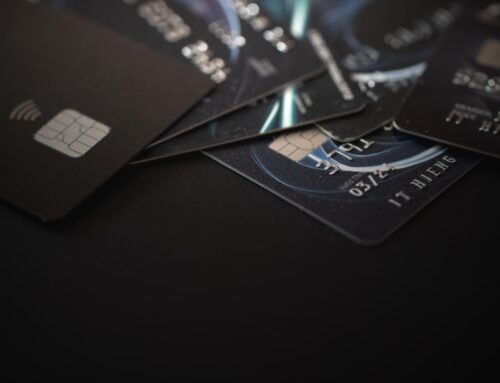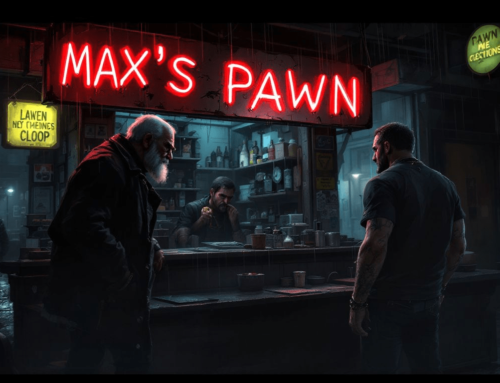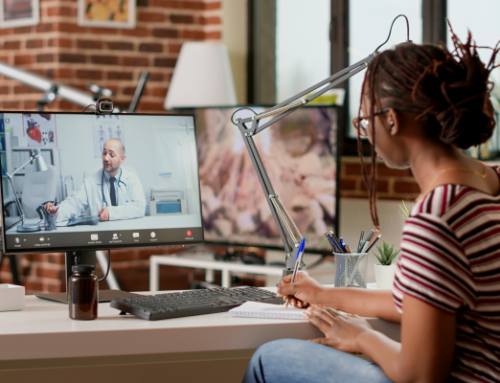BLOGS
Best POS for Retail Businesses: An Ultimate Guide
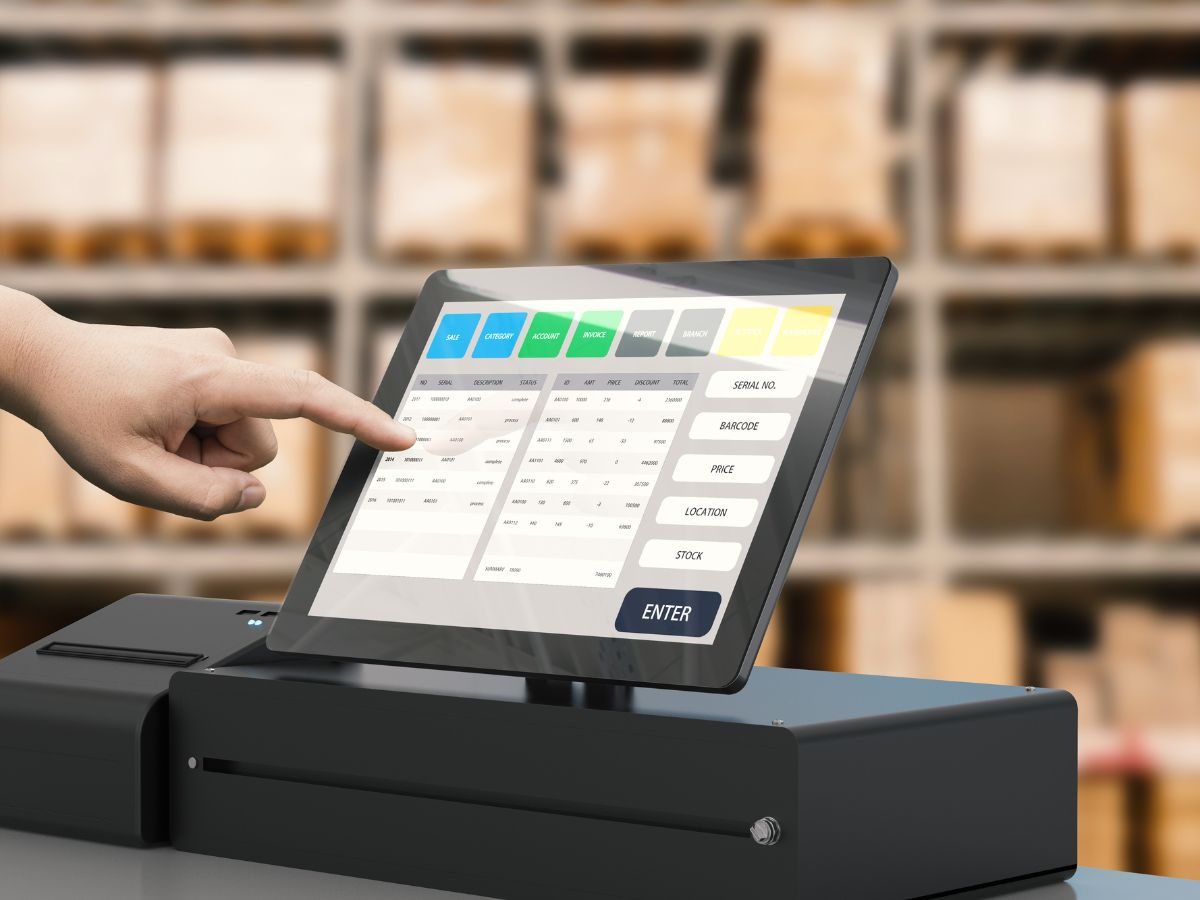
Best POS for Retail Businesses: An Ultimate Guide
Having an effective point-of-sale system is important for big and small business success in the modern busy retail industry. To stay ahead of the competition, you need the best POS for retail that is designed to make things run more smoothly and provide customers with a better experience. The role of POS devices in changing the way people shop is also changing as technology does. This complete guide will show you the best retail point-of-sale systems as well as provide you with important things to consider when choosing the right one for your business.
Key Takeaways
- Check out the best POS software for retailers to find the one that fits the requirements of your business size, and budget.
- Consider additional features such as loyalty programs, employee management, and omnichannel selling capabilities when selecting retail POS software.
- Research payment processing fees, contract requirements, and POS hardware options/costs to ensure you are making a wise decision.
What Is a Retail POS System?
A retail POS is a complete set of software and hardware that can be used to track sales and make operations run more smoothly in both physical and online store. It is the hub where all business deals happen, material is kept track of, and essential business data is gathered. Getting a suitable POS device can change the way of businesses, from small businesses to big companies.
What Do Top Retail POS Systems Have in Common?
Retail POS software is very important in shopping because it makes things run more smoothly and provides customers with a better experience. As retail businesses look for good POS systems, it’s important to find out what makes retail POS different. Let’s take a look at the most important things that these POS have in common:
Easy-to-use interface:
The best POS for retail stores has a layout that is easy for anyone to use. Both employees and customers should be able to easily find their way around choices and complete transactions. Easy-to-use retail POS makes everything faster and easier for workers to learn, from adding products to making sales.
Inventory Management Capabilities:
A common feature among the best retail POS systems is that they can handle products well. With real-time tracking, these options let companies keep an eye on their inventory amounts, see which goods are selling well, and automate the reordering process. This not only prevents stockouts but also helps you make smart decisions.
Integration with Multiple Payment Methods:
Multiple payment methods are supported by the best retail POS systems so they can satisfy the needs of all kinds of customers. A flexible POS system can change to new payment methods, such as credit/debit card transactions, mobile payments, multiple currency payments, and even new choices that aren’t available yet.
Sales Analytics and Reporting:
Successful retail businesses rely on data-driven insights. The best retail POS systems have robust data and analytics tools that help sellers look at sales trends, figure out when their busiest times are, and get an overall understanding of how their business is doing. This information helps people make smart choices about how to grow in the future.
Security Features:
In retail, security is very important, and top POS software prioritizes the protection of sensitive customer profiles. Following PCI compliance standards, making sure payments are processed safely, and using user login methods are all essential parts of making certain transactions safe.
Scalability:
When a company grows, its management needs also increase. Point-of-sale systems can be expanded to handle more products, more locations, and more transactions. Because it can be developed, the POS system will continue to be helpful as the business’s needs change.
Evaluating Retail POS Systems: Key Factors to Consider
When looking for retail POS systems, you should keep a few essential things in mind to make sure you choose the best one for your business. Some of these factors are:
Pricing
One of the most important things to consider when buying a POS system for your store is pricing. Most of the time, the price will depend on what features and functions the system has. You might want to get a cheaper or even free system, but you should think about how much value the POS system will add to your business. It might cost more at first, but it is a system that lets you handle your goods.
Usability
When looking for a retail POS system for your store, you should focus on how easy it is to use. The original setting method is included, as well as day-to-day tasks. So that staff members can quickly get up to speed, the design should be easy to use and not hard to learn. A method that is easy to use cuts down on mistakes boosts total productivity and makes customers happier.
Core features
Core features are the essential parts of a retail POS system that determine how well and efficiently it works. These basic features change from platform to platform, but they usually include the ability to handle goods, process sales, and make reports. Businesses can keep track of their stock amounts and avoid overstocking or gaps with good inventory management. Streamlined sales handling is essential for quick and correct deals, which makes the whole experience better for customer management.
Niche Retail Features
It’s essential to consider special retail features that fit your business needs when looking at point-of-sale systems for your retail business. Some examples are tools for managing products, managing employees, managing customer relationships (CRM), and real-time sales statistics. Keeping track of stock counts and sales trends is impossible without inventory management. CRM tools can help you get to know your customers better and build ties that last.
Hardware Availability
When considering retail point-of-sale devices, POS hardware availability is very important. You should make sure that the hardware you pick works with your POS program and meets the needs of your business. A computer or tablet, a cash box, a credit card reader, a barcode scanner, a ticket printer, and sometimes even a customer profiles system are the major parts.
Monthly fees
When considering the best POS for your retail business, a critical factor to keep in mind is the cost involved. This includes monthly costs, which may be charged for software usage, updates, and technical support. Comparing the monthly payments of different POS systems can help you find a solution that fits your budget without compromising on essential features.
Transaction costs
Per transaction costs are another significant part of your POS expenses. It’s essential to compare the transaction fees of each POS service. Costs like these can vary a lot and add up quickly, especially if your store does a lot of sales.
Hardware prices
You can also choose a POS system based on how much the hardware costs. Some systems need special tools, like a card reader, cash box, barcode scanner, or receipt printer. All of these can add to the cost of setting up the system for the first time. Check to see if the prices of the tools are within your budget, and then compare the cost to the value the system brings to your business management.
Free trial or free version availability
There may be a free version or sample of a POS system that you can use to try out before you decide to pay for it. A lot of service companies let businesses do this so they can test the system and make sure it works with their business.
Pricing of initial and other card readers
When picking a POS system, think about how much card readers cost. If you use cards for a lot of your activities, these fees can have a significant effect on your budget. Look at both the one-time cost and the continued costs of getting more or different card readers.
Potential for hidden charges
Be aware of any hidden charges. These could be setup fees, fees for software changes, or extra fees for customer service. To avoid negative impacts down the road, make sure to read the small print and ask the source about any possible secret fees.
Additional Features to Look for in Retail POS Systems
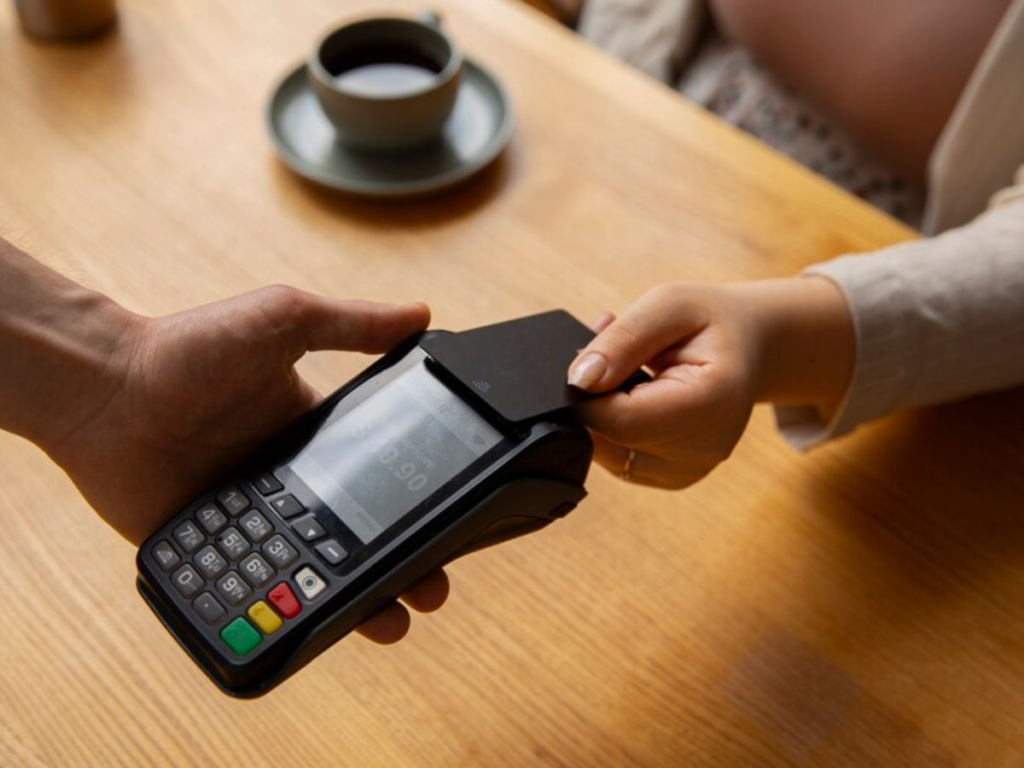
In addition to the main features we already talked about earlier, there are a few more that you should think about when getting a retail point-of-sale (POS) system. These include:
Accounting Integration
It is essential for retail businesses that want to handle their financial resources well to make sure that the retail POS system they choose has smooth accounting integration. A robust store point-of-sale system that connects to your accounting software instantly syncs sales data, inventory changes, and financial activities with your accounting software. This makes things run more smoothly. This combination not only removes the tedious job of human data entry but also improves accuracy and minimizes mistakes in financial reporting.
Mobility
Store owners are always going somewhere. With a mobile cloud-based retail POS system, the owner can run their business or look at sales data from any computer or device online. With mobile POS systems, companies can do business anywhere, like in an actual store, a pop-up shop, or even an outdoor event. This can broaden sales possibilities and make things easier for customers.
Omnichannel Selling Capabilities
The integration of omnichannel features is a game-changer. With this feature, businesses can easily link their real shops to their online store, giving customers a unified and consistent shopping experience. A solid retail POS system that works with all channels lets you handle your goods more efficiently and make sure that all of your sales channels are always up to date. This means that the inventory amounts stay the same whether a purchase is made in-store, online, or through a mobile app. This keeps the store from overselling or having stock gaps.
Shortcut Keys
When it comes to the best retail POS system, speed is essential, and learning quick keys can make the experience a lot better. These computer buttons let store workers quickly carry out orders and improve their workflow by acting as sharp navigational tools. Shortcut keys are a quick way to get things done, like speeding up the checkout process, seeing information about your goods, or handling customer information.
Customer and Loyalty Management
When you’re in retail, managing your customers and their trust well is essential for building long-lasting relationships and making the most profit. A strong retail point-of-sale with cutting-edge features in this area can make all the difference for stores. Businesses can make shopping more enjoyable for each customer by collecting and analyzing information like sales history and tastes. Loyalty programs that are built into the point-of-sale offer prizes, bonuses, and special deals that keep customers coming back.
Wide Range of Payment Options
Another important thing to think about when choosing a retail POS system is how many different payment methods it can handle. A complete POS system does more than accept cash and credit cards. It also adapts to how customers’ tastes change over time. Look for a system that works with contactless payments, mobile payments, and chip cards all at the same time. This way, customers can pick the method of their own payment processor that works best for them.
Retail Reporting
Retail Reporting is the foundation on which businesses make intelligent decisions and plan their future. A suitable retail POS system should do more than just process transactions; it should also give stores helpful information about things like sales trends, product amounts, and how customers act. Retail reporting features let companies make detailed sales records, keep an eye on how well products are doing, and figure out how well their marketing strategies are working.
Role-Based Access Controls
RBAC lets retail companies give each employee specific tasks and rights based on what they are responsible for within the company. For example, a cashier might only need to be able to access functions that are related to transactions, and managers might need to be able to access functions like managing supplies and viewing financial records. This fine-grained control not only improves security by preventing illegal entry but also speeds up work by making sure that each user’s role-specific system powers are used.
Marketing Tools
POS systems in retail need to do more than handle transactions. The best POS systems for businesses have marketing tools built in to boost sales and keep customers interested. This could include things like social media interaction, email marketing connections, customer relationship management (CRM) tools, and control of reward programs.
Managing tips
It’s essential to think about how well a POS System handles tips. A sound POS should make it easy to keep track of tips, especially in places like restaurants and spas where tips are shared. Look for features like being able to easily keep track of tips, giving out tips in different ways (like daily or through paychecks), and letting staff share tips. This not only makes sure that your workers get paid but also makes billing more accessible, which makes the business run more smoothly overall.
Contract Requirements
Payment handling fees and contract requirements are essential when choosing the best POS system for retail businesses. These costs can have a significant effect on your daily activities and your bottom line.
Some companies may also charge a set fee every time for per transaction or every month. As for contract standards, reading and knowing the terms of your agreement can help you avoid fees or charges that you didn’t expect. Before you sign, you should always make sure you fully understand the terms of the property loan, the contract length, and the exit rules.
How To Choose the Best POS System for Retail
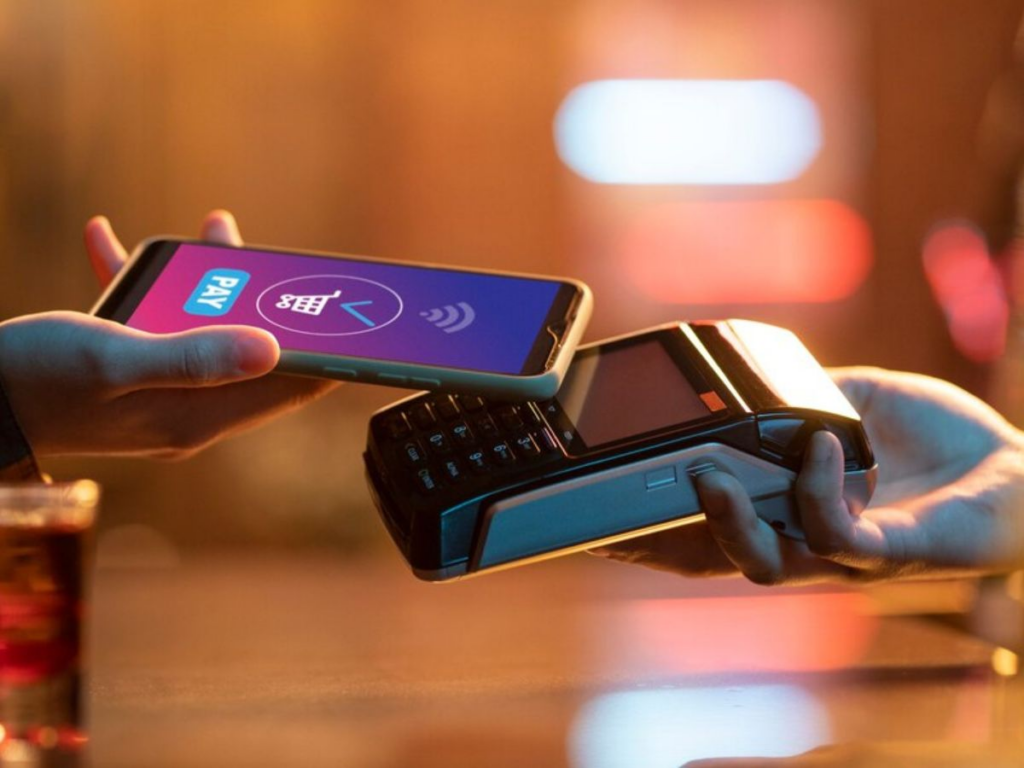
First, we need to know what the business requires and how it works every day. Do we need a way to keep track of your inventory management? Or maybe skills for managing relationships with customers? Second, think about how easy it is to use the method. It should be simple to use so that everyone on staff can do it without any problems. Third, check to see if the system can be expanded.
The POS system should be able to grow as your small business does. Finally, think about the customer service that is offered. You’ll need a service company that can help you with any problems quickly and reliably.
The Impact of POS Systems on Customer Experience in Retail Stores
The impact of POS on customer experience cannot be overstated. A powerful POS makes it easier to buy things, cutting down on wait times and making deals run more smoothly overall. A smooth shopping experience usually means happier customers who are more likely to stay loyal.
Modern POS can also offer personalized shopping experiences by keeping track of what customers like and how often they buy things. This makes the relationship between stores and customers stronger. POS is an essential part of shopping because it makes customers more involved, which is important to boost sales.
Vector Payments for Your Business
It’s essential to make the right choice when choosing a Point-of-Sale for your business, and Vector Payments have the solutions that you’re looking for. Our POS options provide easy-to-use platforms that makes the payment process easy. We offer complete all in one options that are custom made to meet the needs of retail businesses.
Vector Payments makes deals, managing goods, and talking to customers easier with its advanced features and easy-to-use layout. The method is flexible enough to work for businesses of all kinds, making it scalable and effective. Its vital security measures keep private customer information safe, providing companies and their customers peace of mind. If you choose Vector Payments, your retail business can use advanced technology to run more smoothly and make customers happier.
To learn more about the best methods for accepting credit card payments as a small business, check out our comprehensive guide on implementing seamless payment solutions here.
Summary
A good POS for retail is not just about high-tech features; it also gives your business more power and makes things run more smoothly. Vector Payments stands out in this way because it has a lot of features that are meant to make things run more smoothly, make the customer experience better, and make security tighter. You’re not just purchasing a POS system; you’re investing in the future growth of your business with our strong tools because it helps your business do well in a competitive retail environment.
Frequently Asked Questions (FAQs)
Do I need a mobile POS for my retail store?
More and more people are buying things in stores and online with their phones, so it is essential to use mobile POS everywhere. So, it’s not too much of a stretch to say that mobile point-of-sale is the future of shopping.
What hardware do I need for a POS system?
Setting up an effective retail POS requires the right combination of hardware. Here are some of the essential POS hardware components: POS Terminal or System, Barcode Scanner, Receipt Printer, Cash Drawer, Card Reader, Customer Display, and Inventory Scanner.
What are the best retail POS features?
A good point-of-sale system has more than just the ability to take orders and pay. Some of these features include: Inventory Management, Sales Reporting, Employee Management, Customer Relationship Management, Multi-Channel Integration, Security Features, Ease of Use
What is the average cost of a POS system?
A good point-of-sale system usually has an initial cost of about $1,250 and monthly fees between $20 and $70. The initial payment could be anywhere from $0 to $2,000. Every month, bigger shops with more than one register should pay between $100 and $300.
What types of businesses can benefit from using a POS system?
Any business that deals with transactions and inventory can benefit from using a POS system, including retail stores like t-shirt shops and vape tobacco shops, restaurants, pharmacies, forecourts and fast food service based companies.
How long does it take to set up a POS system?
The time it takes to set up a POS system depends on the size of the business and the complexity of the system. A basic system can be set up in a few hours, while a more advanced approach can take several days, including training staff.
Can a POS system be used for online transactions?
Yes, many POS systems can be integrated with e-commerce platforms to process online transactions. This creates the omnichannel experience where you have an all in one platform for both in-store retail card present transactions and online Ecommerce card not present transactions.
What security measures does a POS system have in place?
POS systems have several security measures in place, including encryption of sensitive data, user authentication, and regular software updates to address vulnerabilities. In the end, all POS options and providers are PCI compliant, which is a requirement for secure credit card processing on a day to day basis.

